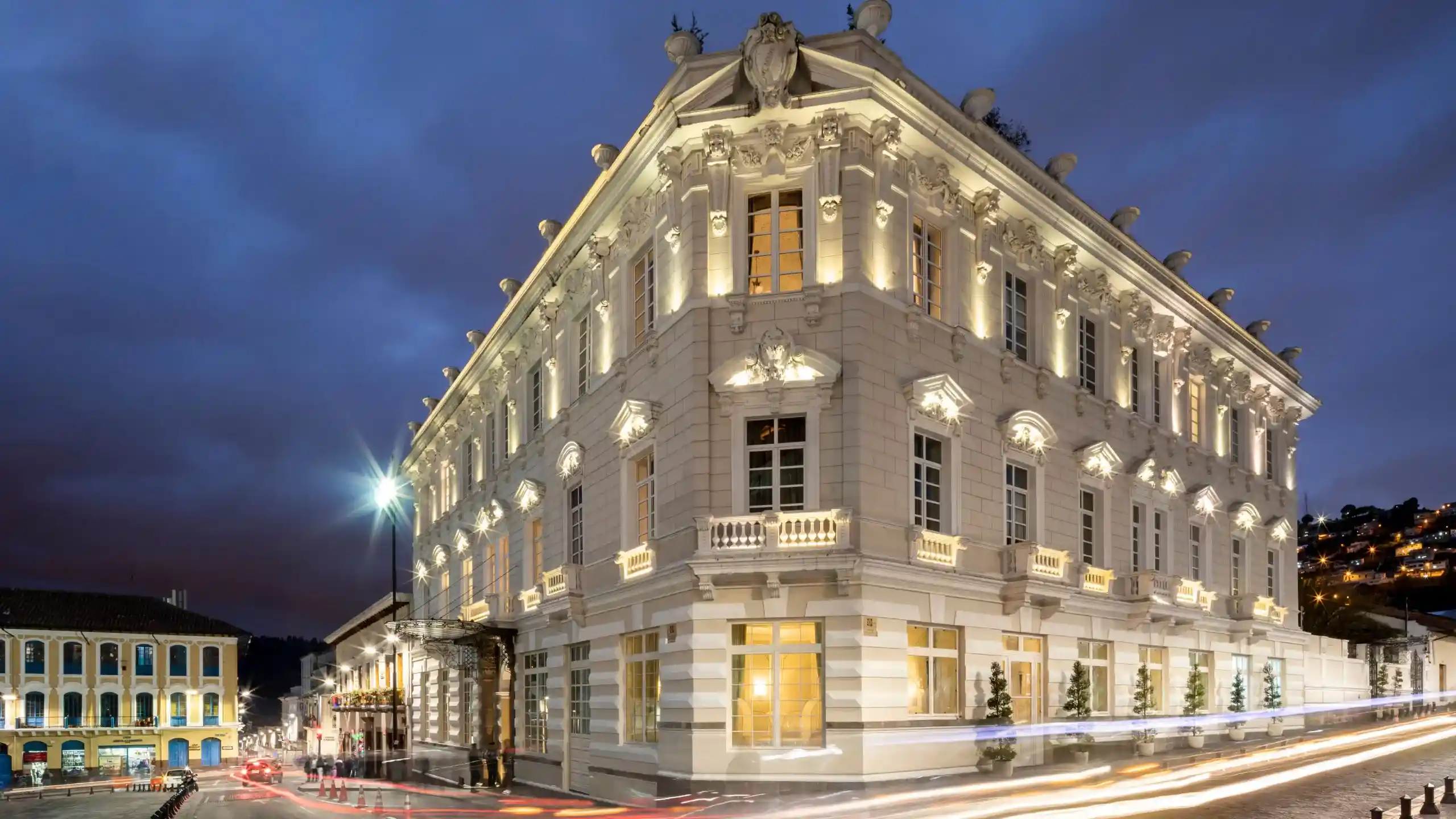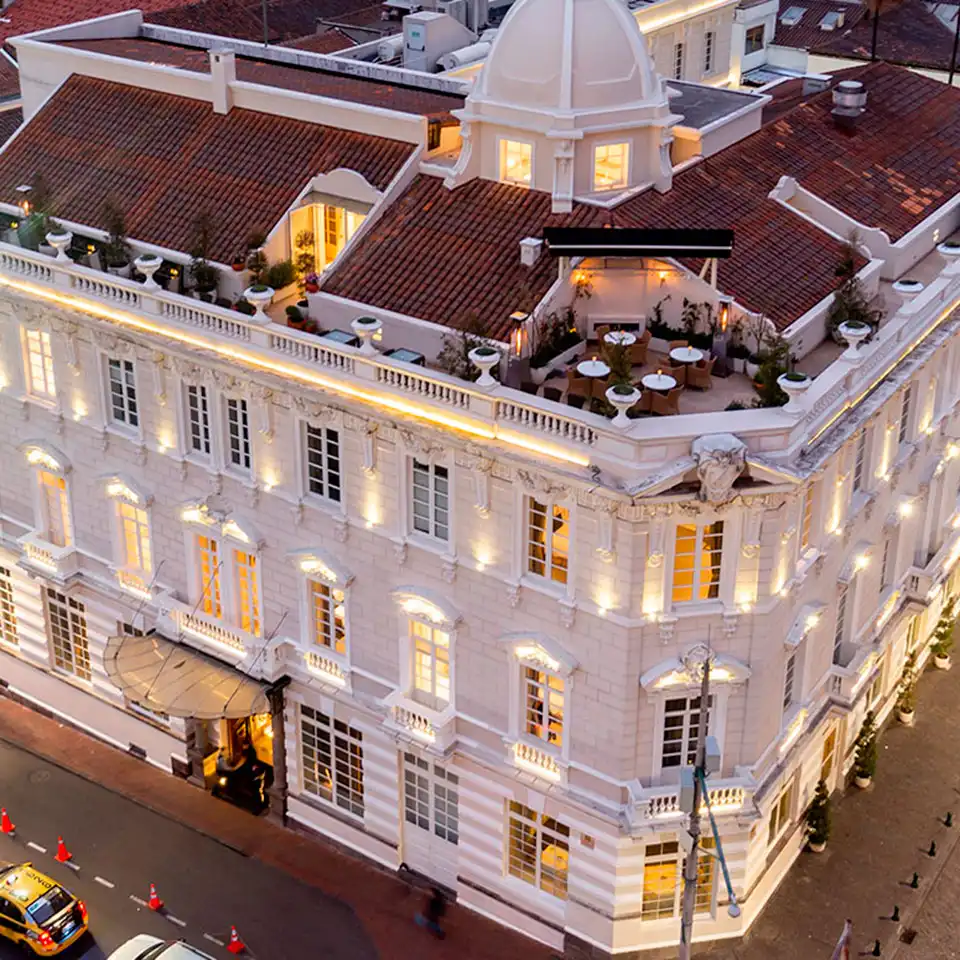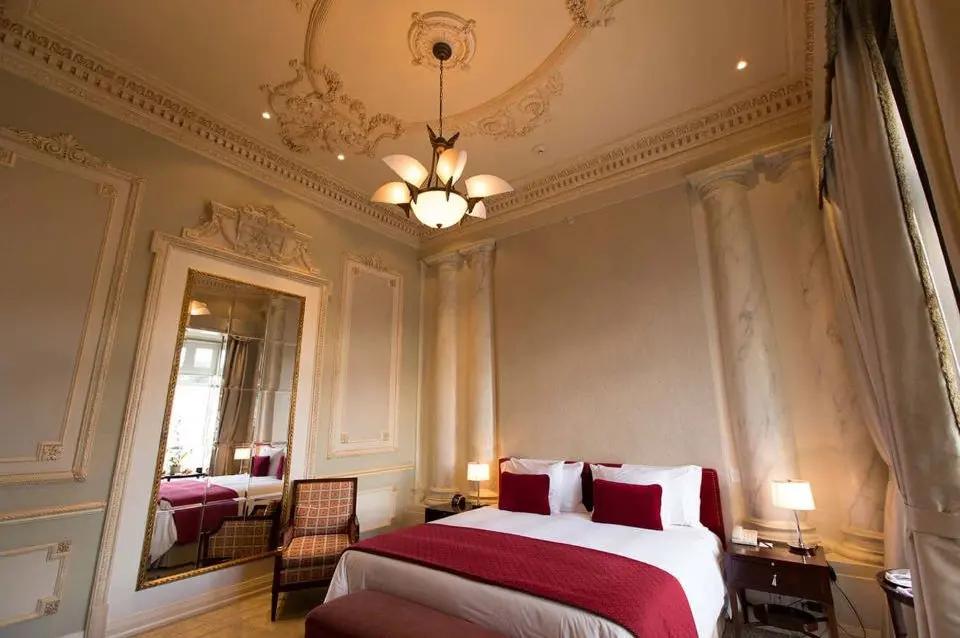What is a boutique hotel? Amidst the vast sea of impersonal hotel chains and predictable amenities, boutique hotels stand out as a haven for couples seeking a more intimate and personalized retreat. Picture a place where each nook and cranny narrates its own tale, the atmosphere hints at unique experiences waiting to be discovered, and every service is meticulously crafted to cater to your whims. For couples, boutique hotels offer more than just accommodation—they craft unforgettable romantic moments, weave local culture into your memories, and set an unparalleled stage for the love stories you’re creating together. Whether it’s the charm of a secluded spot hidden in a distinctive locale, the warmth of bespoke services, or the enchantment of dinners by candlelight with regional delicacies, boutique hotels are the ultimate choice for couples wishing to strengthen their bond in a genuinely unique setting.
Come along with us in this blog as we unpack why it’s worth pairing your next hotel experience with the word “boutique“.

A Brief History of Boutique Hotels
It’s unclear who or when can be credited for creating boutique hotels, but clues about their origin always seem to circle back to Bill Kimpton. After experiencing intimate and personable hotels in Europe during his time as an investment banker in the ’60s and ’70s, Kimpton found himself dismayed by the impersonal attention offered at hotels in the country upon his return to the U.S. This inspired him to infuse a personal touch into the hospitality industry, a hallmark that has become synonymous with the essence of boutique hotels.
Today, hotel chains have embraced and evolved the concept of boutique hotels, launching their versions of luxury resorts and lifestyle chains akin to the personalized and unique appeal found in boutique shops. Despite these efforts, independently owned boutique hotels continue to thrive globally, attracting visitors with their distinct charm and intimate atmosphere, much like the allure and individuality offered by boutique shops.

What makes a Boutique Hotel “boutique”?
While the definition of a Boutique Hotel may vary based on personal tastes and its debated history, identifying one becomes clearer when highlighting the unique elements and features that distinguish it from the mainstream hospitality industry. Much like how fashionable clothes stand out in a wardrobe for their distinctive style and appeal, boutique hotels are renowned for their individuality, personalized service, and the ability to offer guests a one-of-a-kind experience that sets them apart from larger hotel chains.
In a nutshell, hotels that qualify as boutique offer the intimacy, customized comforts, and intricate decor that might be found at a top-of-the-line Bed and Breakfast while still offering all the amenities and services of a 5-star hotel.
Here’s a more detailed breakdown of what makes a hotel boutique, along with a brief description of each distinctive feature:
- Location: Boutique hotels are often located in unique settings, whether it’s the heart of a city, a secluded beach, or amidst scenic countryside. Their smaller size allows them to be positioned where larger hotels might not fit.
- Smaller Size: Boutique hotels are typically smaller—with an average of a dozen to two dozen rooms—and offer a more intimate and personalized experience than large chain hotels.
- Distinctive Character: Boutique hotels and their rooms often have a unique design and theme that sets them apart from chain hotels. They might be found inside historically significant buildings, or they could have a modern design that’s a stark contrast to their surroundings.
- Personalized Service: With fewer rooms compared to large chain hotels, boutique hotels can offer more personalized and attentive service. The staff may get to know you by name and anticipate your needs.
- Local Experience: Many boutique hotels are deeply embedded in their local culture and community. This can offer guests a more authentic and local experience, whether it’s through the food served, the decor, local art displayed, or community tours that are hosted by the hotel itself.
- Quality Over Quantity: While they might not have as many amenities as larger hotels, the amenities they offer are often of higher quality and more thoughtfully curated.
- Exclusivity: The smaller size and unique character of boutique hotels can make guests feel as if they’re in on a luxurious secret that provides an exclusive experience, with plenty of Instagram-worthy nooks and spaces to enjoy a moment together or revel in the views of the surroundings.
- Sustainability: Many boutique hotels prioritize sustainability, sourcing local produce and materials and integrating eco-friendly practices into their operations.
- Atmosphere: Without the constraints of a brand standard, boutique hotels often have a more relaxed, intimate, and cozy atmosphere, making guests feel more at home.
- Unique Features: Whether it’s a rooftop terrace, a local cooking class, a private art collection, or themed boutique hotel rooms, these types of hotels often offer features you won’t find in standard chain hotels.
- Economic Support to Communities: Choosing a boutique hotel might mean you’re supporting a local business. This can have positive economic impacts on the community, ensuring your money stays within the area.
- Diverse Dining Options: Boutique hotels often have one-of-a-kind dining establishments that prioritize local cuisine and ingredients, providing guests with unique gastronomic experiences.
- Storytelling: Many boutique hotels have a story to tell, whether it’s the history of the building and/or area, the vision of the owner, or the culture of the community. Sometimes, they’ll share these stories through guest-exclusive activities or tours.
Boutique Hotel Examples
Boutique hotels are scattered globally, offering a wide range of experiences, from the bustling streets of New York City and Tokyo to the serene holiday spots like Tulum and Santorini. However, they are less common in suburban areas, predominantly found in niche locations that cater to travelers seeking unique and immersive experiences. Here are a handful of prime examples of boutique hotels in Latin America, showcasing the wide range of distinctive accommodations available across this vibrant region.
- Casa San Agustin– Cartagena, Colombia: Comprising three beautifully restored colonial homes, the hotel offers a blend of history and luxury, with walls dating back to the 17th century.
- El Mercado– Cusco, Peru: Located close to the central square, it combines traditional Andean charm with modern luxury.
- Casa Gangotena – Quito, Ecuador: Nestled in the heart of the historic Old Town (a UNESCO World Heritage Site), this elegant mansion intertwines rich heritage with contemporary elegance and guest-exclusive activities, standing as a testament to the grandeur of the early 20th century.
These are just some boutique hotel examples worth checking out in northwestern South America. But keep in mind that boutique hotels also don’t have to be singular or independent—they can be part of a larger hotel chain. Here are some examples of such boutique hotels:
- W Hotels (Marriott International): W Hotels are known for their vibrant designs, contemporary aesthetics, and focus on nightlife, music, and fashion. W Barcelona in Spain is an iconic property with its sail-like structure offering panoramic views of the city and the sea.
- Andaz (Hyatt Hotels): Andaz champions local culture and design, offering guests an authentic and personalized experience influenced by the hotel’s surroundings. Andaz Maui at Wailea Resort in Hawaii provides a luxurious beachfront experience with a design that reflects the culture and environment of Maui.
You may also like: Difference Between a Boutique Hotel and a Hotel
What is a boutique hotel room?
Boutique hotels, characterized as small stylish hotels, set themselves apart through their unique decor, handpicked amenities, and diverse room layouts, providing a highly individualized experience that stands in contrast to the uniformity of larger chain hotels. Unlike a standard room at a Hilton which might look the same whether it’s in Seattle or New York, each boutique hotel room offers a distinct charm and character. This is often a reflection of the hotel’s specific location, embodying the essence of its surroundings and providing guests with an immersive experience that captures the spirit of the locale. Boutique hotels excel in offering this personalized touch, making each stay memorable and distinct from the next.
Boutique hotel rooms stand out for their commitment to interior design, with each space being individually decorated to offer a unique guest experience. This approach allows for the display of eclectic or historical art, the application of vibrant colors, and the use of antique furniture, creating an atmosphere that is both inviting and distinctive. Furthermore, these hotels enhance the guest experience with local amenities such as artisanal soaps and/or coffee, emphasizing the connection to the surrounding community. In contrast, chain hotels typically opt for a more consistent and functional design, offering identical amenities regardless of location, which can lack the personalized touch and character found in boutique accommodations.
Are boutique hotels better?
The essence of boutique hotels, especially when discussing “interior design” within the context of luxury hotels, is their distinct departure from the conventional approach seen in traditional hotel chains. Boutique hotels are defined not just by their size or exclusivity, but by their commitment to creating unique guest experiences through meticulously crafted interior designs. These establishments prioritize the individuality and character of their spaces, often incorporating luxurious elements and bespoke designs that reflect the cultural and historical essence of their locations. This focus on interior design elevates the status of boutique hotels within the luxury hotel segment, ensuring that each stay is memorable for its distinctiveness and personalized touch.
In the context of the hotel industry within major cities, it’s evident that the shift towards boutique hotels is part of a broader trend. Major cities like Las Vegas, New York, and San Francisco, renowned for their dynamic hotel sectors, are seeing a burgeoning interest in properties that offer more than just luxury amenities; they prioritize creating a unique personality and ambiance. This approach often involves opting for historical and/or eclectic designs that stand out from the conventional offerings of larger chains. As a result, if you and your partner are seeking an accommodation experience that is both luxurious and distinctive, with curated services set in unparalleled locations, then choosing a boutique hotel in one of these major cities could provide you with a truly memorable stay. This trend underscores a significant evolution in the hotel industry, where the emphasis on individuality and unique guest experiences is becoming increasingly valued, especially in bustling urban centers.
Enthusiasts often prefer boutique hotels for their authentic vibe and local experiences, making them popular worldwide. So, boutique hotels stand out tremendously for those looking for a localized experience, as they provide a charm and personality that’s hard for chain hotels to replicate. Whether it be for romantic travel or an immersive and unforgettable stay, boutique hotels are an excellent choice.





